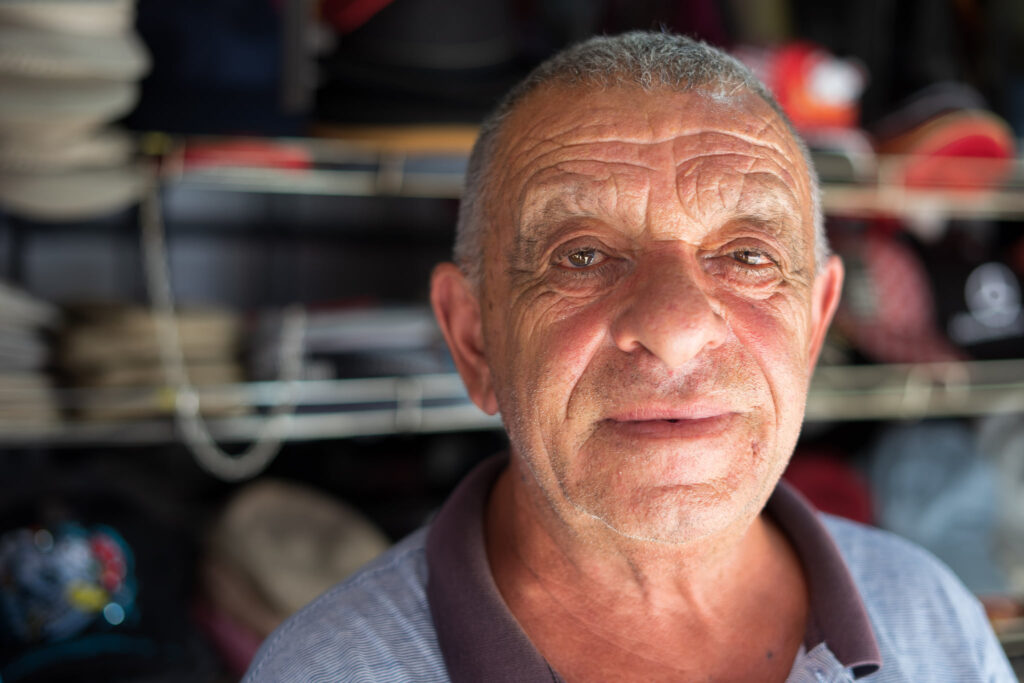The man in the photo sells clothes at an open-air market in Ohrid (North Macedonia). Ohrid has an atmosphere of an Adriatic Sea resort. He worked for a company which manufactured concrete constructions. He lived and worked in Czechoslovakia for 5 years in 70s as a part of the employment aforementioned. He participated in building manufacturing production halls for Skoda (automobile manufacturer). Afterwards he participated in bridge constructions in Prague.
He was regularly sent to these stints abroad from Yugoslavia. Apart from Czechoslovakia, he worked in Germany, Ukraine and Poland.
He brought jeans and other unavailable goods from Yugoslavia to Czechoslovakia. He usually gave a bottle of cognac “Vinjak” to customs officers at a border as a present so they turned blind eye on the transported goods.
He earned 6 500 Yugoslavian dinars while abroad. Local Yugoslavians earned between 2000 and 3000 dinars. A flight ticket from Ohrid to Belgrade cost 320 dinars (600 km) at that time.
I asked him if the difference between quality of life and wealth between Czechoslovakia and Yugoslavia was big. He answered yes. It was with a very strong and expressive face (as an approval mimics).
He hasn’t been in Czechoslovakia since 70s. Nevertheless, we spoke Czech together.
It was allowed to entrepreneur since 1974 in Yugoslavia. An entrepreneur usually earned double of an employee salary. That was the reason why many people became self-employed.
When he was in Czechoslovakia, he went to parties (“zábava”) and pubs with Czechoslovaks. He says it was amazing.
He thinks that the dissolution of Yugoslavia was a bad move. He believes the Americans had an interest in the break-up of Yugoslavia.
Tito was a clever man and knew how to deal with the West and the East. He made the best out of it.






